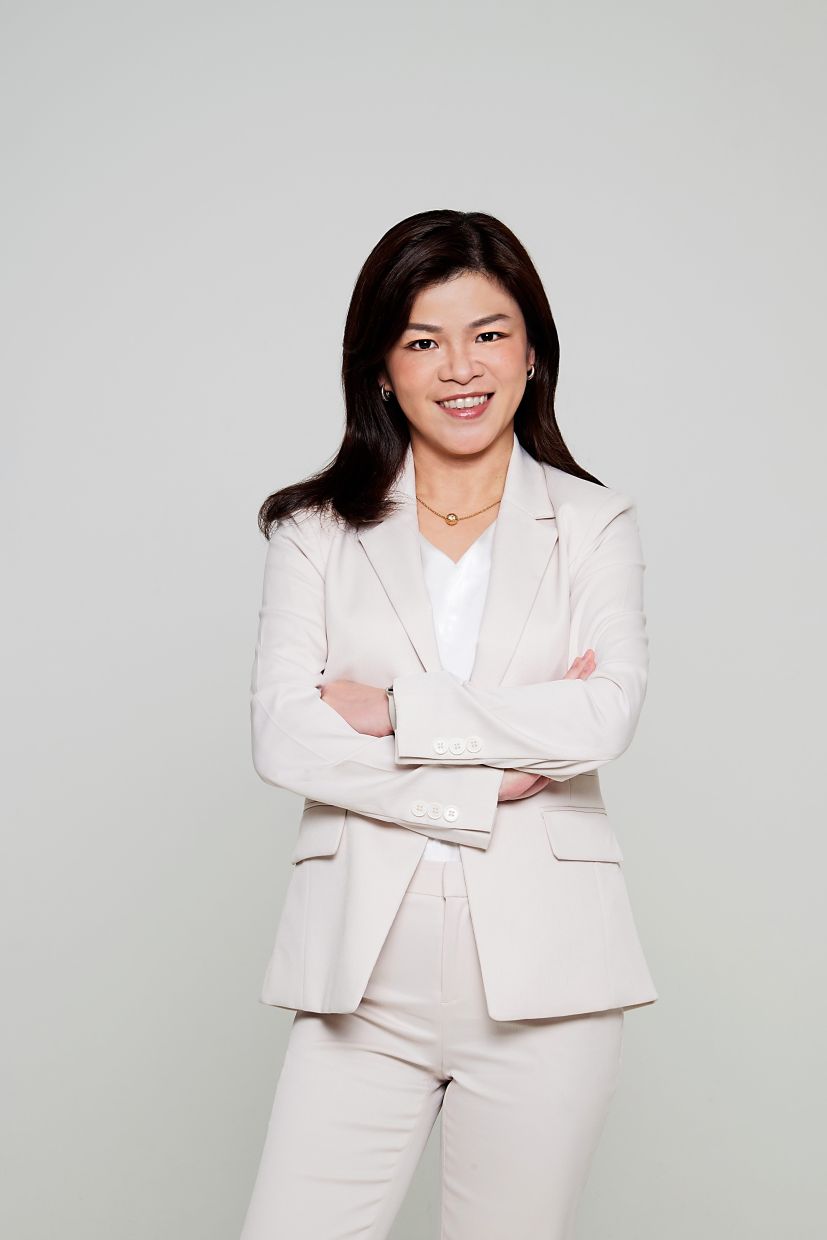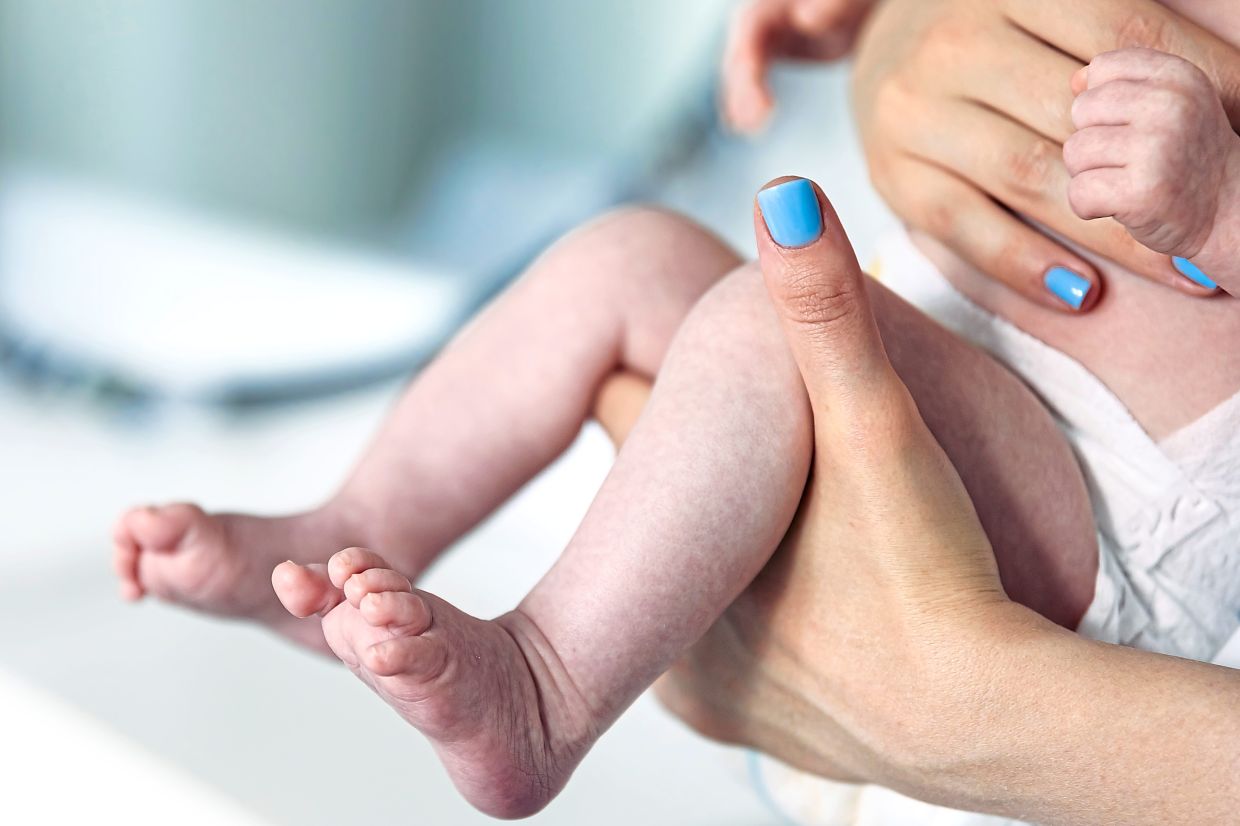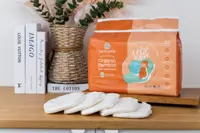Dr Tan says parents should help babies strengthen their skin barrier through good skincare routine. Photo: Freepik
A typical baby arrival checklist would usually include clothes, accessories, furniture and other items that can help new parents manage their new bundle of joy. Infant skincare, however, doesn't usually come up tops on that list, and for paediatric dermatologist Dr Jenny Tan Yen Ling, this oversight may lead to uncomfortable, fussy infants. Far from cosmetics, the skin (which is human beings' largest organ) plays the role of a protective barrier that regulates body temperature and facilitates sensation. It protects the body from external threats like microorganisms, dehydration and UV radiation.
Dr Tan says she sees two kinds of parents in her practice. Some, she says, are extremely vigilant about skincare, ingredients, hygiene and skin sensitivity. "On the other end of the spectrum are parents who take infant skincare lightly because they say babies are already born with good skin, so there is nothing more to do," she says. "I think it's the parents' responsibility to help babies strengthen their skin barrier early through good skincare routine so they get a good head start."
Dr Tan was speaking at the Cetaphil SkinLabs event, a skincare education drive for the public to learn about sensitive skin. For a start, she says, many parents have the wrong perception of what's suitable for babies. "The market is filled with baby products and to most people, everything labelled 'for babies' is gentle and is therefore, suitable for infants," she says. The situation, she clarifies, isn't that simple. Some baby products are still made with strong chemicals, artificial colours and fragrance that could lead to skin reaction. "You need to read the ingredients list and understand what it's made of and if it's backed by dermatologists and solid scientific studies," she adds.
Too scared
The extremely vigilant parents may also be wrong in their approach to infant skincare, she says. "Some new parents are scared of dirt so they over-cleanse their baby more than two to three times a day. This constant cleaning strips off the skin's natural moisture, so instead of cleaning, the baby's skin gets dry." Dr Tan suggests that babies less than a month old should be given a bath once daily, and a wipe down done at another time. "There's an exclusion for this, that is if the baby has sensitive skin triggered by sweat, in which case he or she may need more cleansing," she adds. The application of traditional remedies like ointment for "wind", for example, may also irritate a baby's skin. "The product may be harsh and the baby's skin is very delicate, leading to itchiness or rashes," she says. Dr Tan says another practice that is harmful to babies is the use of talcum powder.
"Babies' skin is prone to dryness so what's needed is a moisturiser, not talcum powder," she adds. "I was a talcum powder baby myself but I think as medical knowledge grows, our practice needs to shift towards what's recommended and better for the infant," she says.
The right practice
What babies need consistently, Dr Tan says, is a bath with gentle cleanser using lukewarm or room temperature water. "Never use hot water on babies and always test the temperature before bathing. Don't towel-wipe babies vigorously. Instead, dab a clean towel on the skin to dry it. Before the baby's skin is completely dry, apply moisturiser to strengthen the skin," she says. Dr Tan says while there is not enough evidence currently to say that early use of moisturiser may prevent skin issues like eczema, ongoing studies are showing positive results. "Babies who use moisturiser early on may have a lower chance of developing severe eczema," she adds.
As a mother of three children, Dr Tan says infant skincare is just as important as nutrition. "As parents, we give infants the best nutrition to help them from the inside. Good skin helps protect babies from the outside," she says. For Malaysia's hot and humid weather, a balanced approach is best. "Use richer cream if the baby stays in an air-conditioned room, but use a lighter lotion otherwise. Look for rashes or signs of discomfort and treat them promptly; an uncomfortable baby will be fussy," she says. "That's why prevention is always better than treatment," she adds. "Protect skin early before problem arrives," she concludes.







